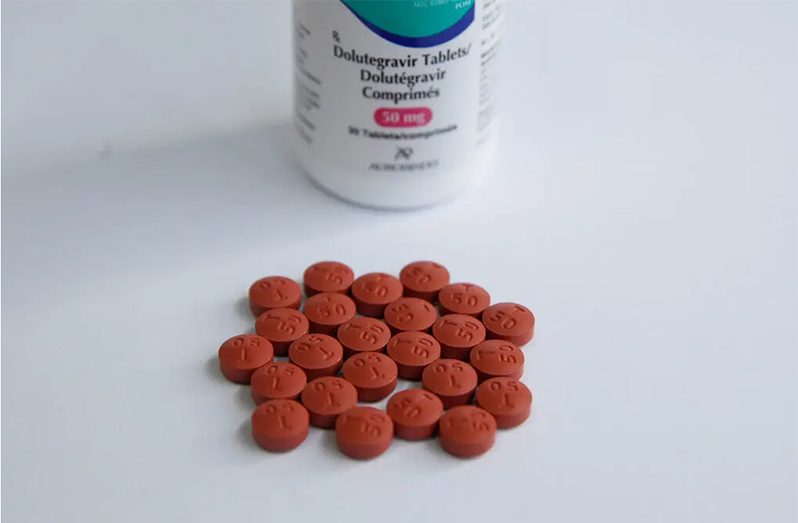Health Ministry incorporates advanced drug in HIV treatment regimen
IN 2023, the Ministry of Health documented a decrease in the incidence of new HIV cases compared to the preceding year, 2022.
Minister of Health, Dr. Frank Anthony, disclosed this during the ministry’s end-of-year press conference. He noted that there were 238 new HIV cases recorded.
While he noted that health officials are happy that this is a decline compared to the previous year, 2022, he added that the country has approximately 9,000 persons who are confirmed HIV positive overall.
Of that number, Dr Anthony revealed that 6,558 persons are currently on treatment. Added to this, he told the conference that the ministry has updated the treatment regimen to incorporate the use of the drug dolutegravir.
This drug stands in a class of medications that are called HIV integrase inhibitors, which work by helping keep the virus from reproducing and slowing down the destruction of the immune system.
Integrase inhibitors are one of six classes of antiretroviral drugs (ARVs) used to treat HIV as part of antiretroviral therapy (ART).
Further to this, it was observed that in an earlier time period in 2023, the ministry implemented a viral load machine capable of assessing the viral loads of individuals who have tested positive for HIV. Consequently, this machine allows for the evaluation of the effectiveness of the treatment being administered in achieving viral suppression.
“Viral loads in the past have been a problem for us because we didn’t have viral loads and we were asking people to do these privately right, now that we have a viral load machine that number is going to go up significantly, so I would imagine all the persons who are on treatment would be able to get their viral loads done, then we would be able to determine if they are virally suppressed,” Dr Anthony said.
Meanwhile, when asked about achieving the Joint United Nations Programme on HIV/AIDS (UNAIDS) 90-90-90 target to help end HIV, the minister said that Guyana has quite a way to go.
This target was set out to ensure that 90 per cent of people living with HIV will know their status, 90 per cent of all persons diagnosed with HIV will be on treatment, and 90 per cent of those on antiretroviral therapy will have viral suppression by 2020.
Dr Anthony further stated that this target has since been moved to ‘95-95-’ by the year 2025.
In this regard, he expressed that Guyana has successfully attained a 95% milestone, wherein individuals in the country are aware of their status. However, in relation to the second objective involving individuals receiving treatment, it is currently at an approximate 80 per cent and therefore needs to enhance this figure.
He said, “Now what happened is that some people when we diagnose them, they don’t come in for treatment, because in the early stages, people feel well; they don’t have anything so they are not coming for treatment, so we still need to work on that to bring more people into treatment.”
Moreover, it is important to highlight that, in addition to the updated treatment regimen for individuals testing positive, the Ministry of Health has introduced Pre-exposure Prophylaxis (PrEP) as a preventive measure against HIV transmission through sexual intercourse or injection drug use.
According to his explanation, this will be provided at different facilities. Individuals who believe they are at risk for HIV can undergo assessment and, upon receiving a negative test result, can be placed on PrEP.
Added to this, the ministry has also introduced self-testing, so persons do not need to go to a health centre to get tested; they can be given a test kit and test themselves at home. If positive, they should go to a site near them to be placed on treatment.
“So, that’s the new modality. We are working towards getting more people to understand these new modalities,” he expressed.



.jpg)








